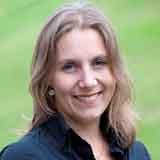 We live in an information rich society, where information is produced and communicated faster and faster. New technologies and ways of communicating, combined with a high demand for health related news, increases the necessity of health experts, and science and health journalists to collaborate. But what can they expect from one another?
We live in an information rich society, where information is produced and communicated faster and faster. New technologies and ways of communicating, combined with a high demand for health related news, increases the necessity of health experts, and science and health journalists to collaborate. But what can they expect from one another?
Scientists are trained for years to write comprehensive, detailed, and often lengthy and complex papers for scientific peer-reviewed journals. When they communicate with their peers or with students it is in lectures; often 45 minutes or longer. They are dualists—often explaining a topic “on the one hand… on the other hand”—providing different perspectives and a focus on limitations and exceptions. They avoid simplification to ensure that all details are taken into account. They need to publish in high impact journals to gain credentials. Getting information across to the lay public counts less.
Journalists focus on headlines, sensations, and contradictions. What they write needs to be short, clear, and concise. They publish in newspapers, blogs, and Twitter, and broadcast on radio and television. Simple language is essential and complex matters are explained as clearly as possible. Competition is high and credentials are gained by scooping the best story.
As journalists and scientists come from two different perspectives, there is a high risk of clashing. Precautions need to be taken to ensure that expectations from one another are met. So, how can scientists and journalists learn to speak each other’s language?
A way forward could be to include media training in curricula for health professionals, ensure PR staff are used to translate scientific matters into easily readable articles for the lay public, and pay attention to explaining things clearly in interviews. Journalists can increase their health literacy to better understand health matters, health systems, and related policies. They can support knowledge translation by acting as knowledge brokers and hence create trust and transparency.
On average 47% of the population in eight European countries have difficulties in managing their health and navigating health systems. Scientists and journalists have an obligation to improve people’s health literacy in Europe by providing access to relevant health research, in a way that the public can understand, judge, and apply in daily life. It is imperative that journalists and scientists collaborate by respecting each other’s interests, yet seek a common ground to ensure high quality in publications concerning health research for society as a whole.
The content of the blog was inspired by a discussion at a round table discussion organised by the European Union Science Journalists Association (EUSJA), and attended by health journalists, health experts, and decision-makers in health. It took place during the European Health Forum Gastein 2013.
I declare that that I have read and understood the BMJ Group policy on declaration of interests and I have no relevant interests to declare.
Kristine Sorensen is a researcher and project coordinator of the European Health Literacy Project, Maastricht University.
